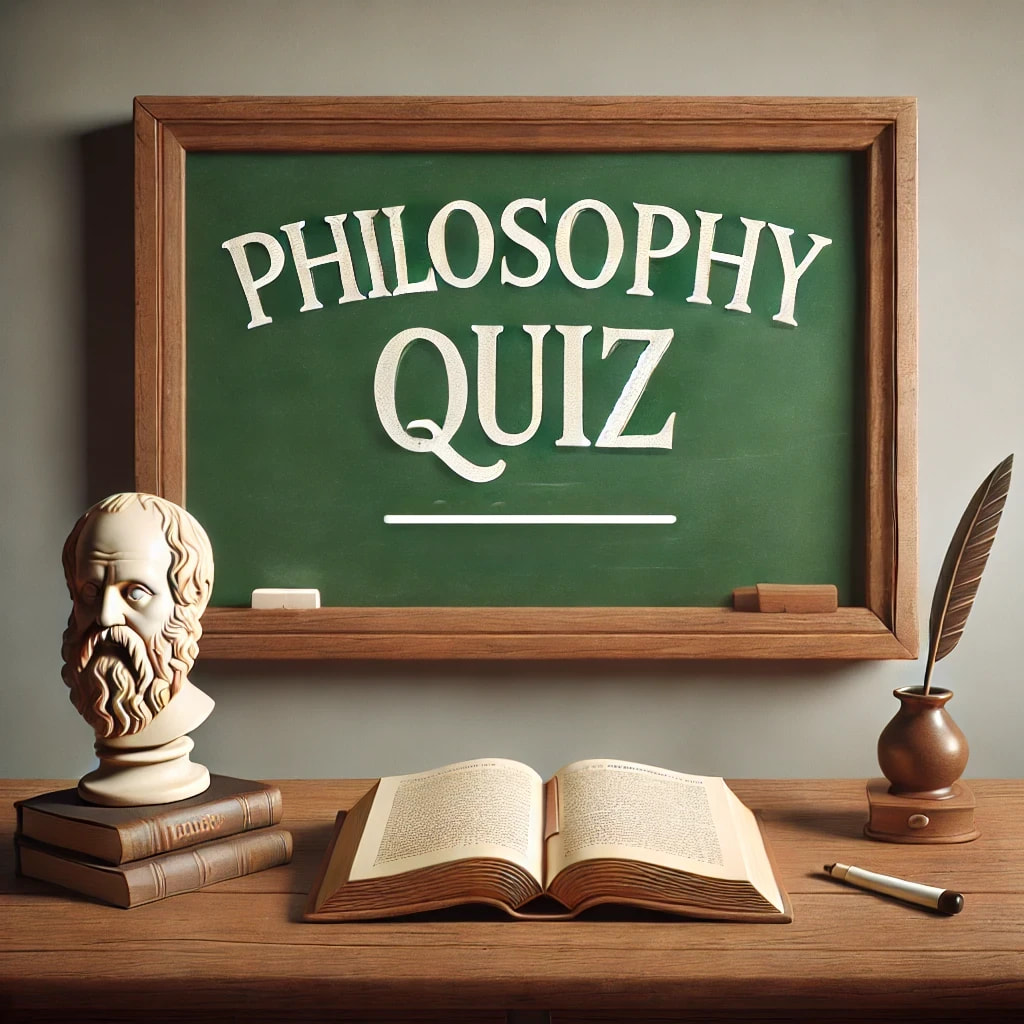This section contains all of the questions that could be a part of this quiz. The quiz will choose 15 random questions from the pool below. If you've found this section feel free to take a look but to start the quiz you should press "Start Quiz". You may also be thinking that some information is missing for some of the below questions and you'd be right! The answers listed below only contain answers that appear in the quiz, so as a hypothetical example, if a question asks about which philosopher would win in a footrace between Plato and Aristotle, and 4 options are given in the question, only the correct answer will appear in the below information. This is because this supplemental information is about the quiz itself and not intended as a comprehensive list. We hope you found the quiz to be entertaining and informative. If you haven't taken it yet, Good Luck!
Q1: Who is known as the father of Western philosophy?
A1: Socrates
Q2: Which are branches of philosophy?
A2: Metaphysics, Epistemology
Q3: What is the study of knowledge called?
A3: Epistemology
Q4: Which philosopher wrote "The Republic"?
A4: Plato
Q5: Which are utilitarian philosophers?
A5: Jeremy Bentham, John Stuart Mill
Q6: What is the term for the philosophical study of beauty?
A6: Aesthetics
Q7: Which philosopher is famous for the statement "I think, therefore I am"?
A7: René Descartes
Q8: What is the main focus of existentialism?
A8: Individual freedom and choice
Q9: Which are ethical theories?
A9: Deontology, Utilitarianism
Q10: Which philosopher is associated with the concept of the "categorical imperative"?
A10: Immanuel Kant
Q11: Which are forms of logical fallacies?
A11: Ad Hominem, Straw Man
Q12: What does the term "ontology" refer to in philosophy?
A12: The study of being and existence
Q13: Who authored "Thus Spoke Zarathustra"?
A13: Friedrich Nietzsche
Q14: What is the philosophical study of moral values and rules called?
A14: Ethics
Q15: Which are ancient Greek philosophers?
A15: Socrates, Aristotle
Q16: What is the philosophical term for the study of the nature of reality?
A16: Metaphysics
Q17: Which philosophers are associated with existentialism?
A17: Jean-Paul Sartre, Friedrich Nietzsche
Q18: What is "Dualism" in philosophy?
A18: The belief that reality consists of two fundamental substances
Q19: Which are notable works by Immanuel Kant?
A19: Critique of Pure Reason, Groundwork of the Metaphysics of Morals
Q20: What does "a priori" knowledge refer to?
A20: Knowledge independent of experience
Q21: Which philosopher is known for the concept of "Übermensch"?
A21: Friedrich Nietzsche
Q22: What is the main idea of utilitarianism?
A22: The greatest happiness for the greatest number
Q23: Which philosopher is associated with the idea of "the veil of ignorance"?
A23: John Rawls
Q24: What is "phenomenology" in philosophy?
A24: The study of structures of consciousness
Q25: Which are concepts in Aristotle's philosophy?
A25: The Four Causes, Virtue Ethics
Q26: What is "determinism" in philosophy?
A26: The belief that all events are determined by prior causes
Q27: Which philosopher is known for "Being and Time"?
A27: Martin Heidegger
Q28: Which are principles of Kantian ethics?
A28: Act only according to that maxim whereby you can at the same time will that it should become a universal law, Treat humanity, whether in your own person or in the person of another, always as an end and never as a means only
Q29: What is "solipsism"?
A29: The belief that only one's own mind is sure to exist
Q30: Which philosopher is associated with the idea of "the social contract"?
A30: Jean-Jacques Rousseau

